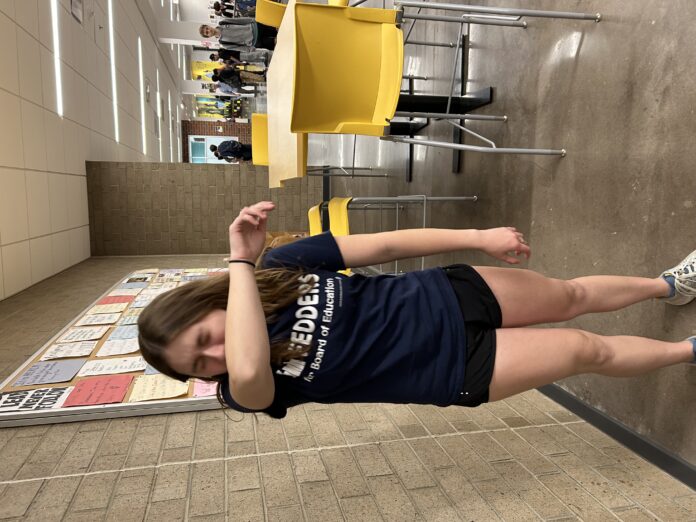
The record for pollen count per square cubic meter of air was broken on March 31 with a record high 16,284 pollen grains. This high concentration of pollen has affected those with and without allergies alike, even making it difficult for some to learn.
Junior Hannah Dellon said the daily struggles take a toll on her even before school. “Every morning, my car is covered in pollen, so I get to school already sneezing,” Dellon said. “Even walking for just a minute outside to get from class to class makes my allergies flare up.”
Junior Kayla Poellot—a forward on the school’s soccer team—said the pollen has made it particularly difficult when playing or practicing her sport.
“I take allergy medicine to try to prevent as many symptoms from pollen as possible,” she said, “but I find that even with my daily pill, my nose still gets itchy and my eyes are constantly irritated whenever I walk outside. These levels of pollen make it hard for athletes, who are outside for hours at a time, to perform well, even if some of them aren’t allergic to pollen.”
Due to the unprecedented pollen count, those with allergies have noticed stronger symptoms than ever before. “I do believe that I have been personally victimized by this year’s pollen … I cannot go the entire duration of a class without violently sneezing until I go dizzy,” junior Amelia Hill said.
Hill’s symptoms have led her and many others to try new ways to subdue the symptoms. “I have chosen this year to not take any medication to see if I could trick my body and help my symptoms from pollen with reverse psychology,” Hill said, “but so far it has been to no avail.”
Hill isn’t the only one feeling as if allergy medication is not enough.
“Pollen allergies have always affected me, but this year has been especially bad,” sophomore Zoe Zhang said. “I’ve still been very congested despite taking allergy medicine, and I don’t think that my allergies have ever impacted me as much as they have this year.”
For those struggling with allergies this pollen season, school nurse Lorraine Bleeke shared some advice.
Bleeke encouraged those with allergies who are “outside, especially with sports” to shower often, opt for air conditioning instead of opening windows, and clean anything that is known to trap allergens. Bleeke also advised students to “take medicine consistently so it works better.”
For those who are especially at risk, Bleeke recommended Pollen People, a website that sends a localized daily email with allergy information including pollen count, top allergens and the five-day pollen forecast.











